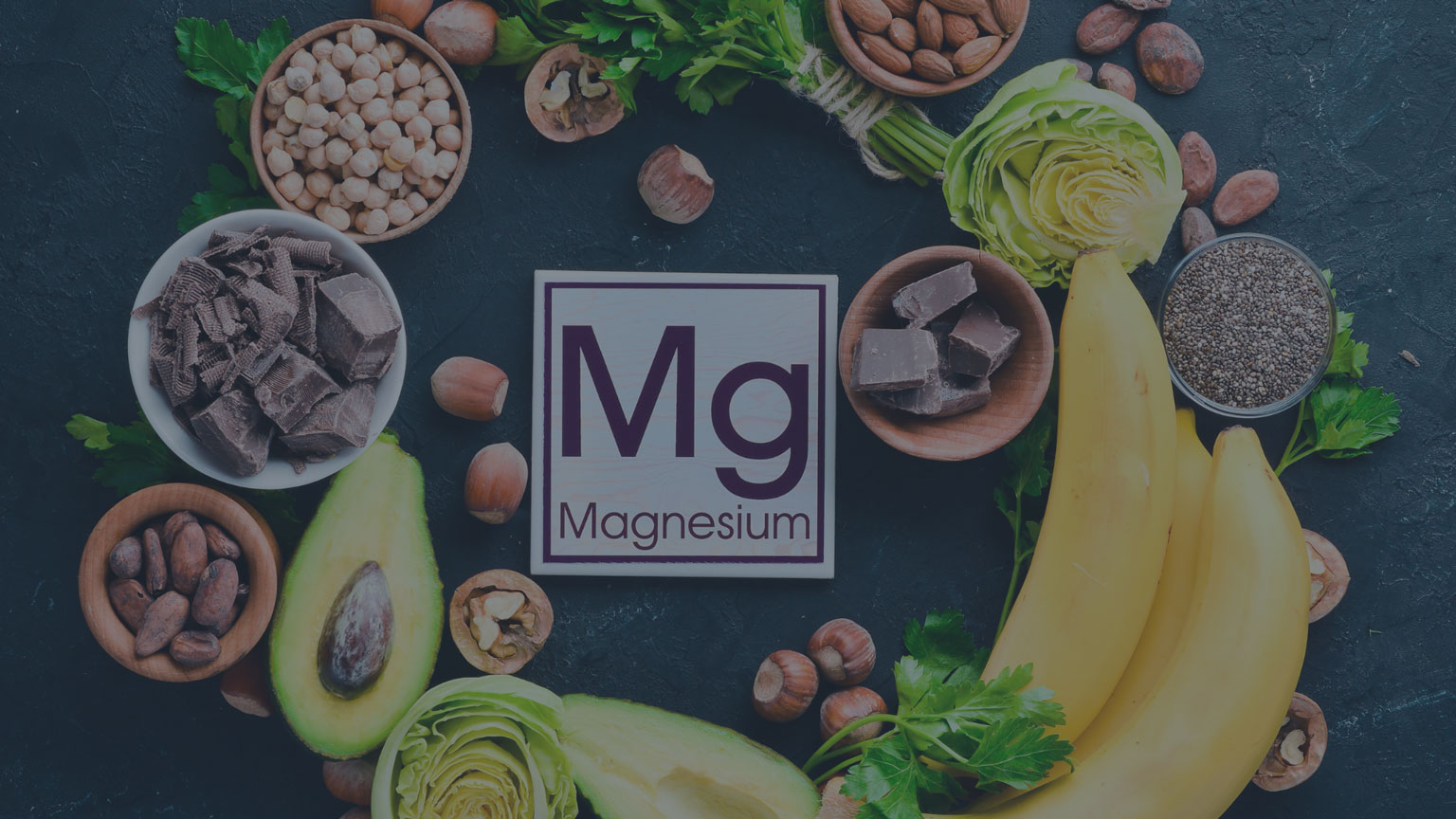7 Warning Signs You May Be Deficient in Magnesium

Table of Contents
Why You Need It
Often referred to as the “energy mineral,” magnesium [NR1] is a nutrient that plays a role in hundreds of metabolic reactions in the body, including helping with muscle and nerve function, maintaining heart health and blood sugar levels, supporting the immune system and assisting in the creation of protein, bone and DNA.
Low amounts of this mineral can increase the risk for cardiovascular disease and stroke, hypertension, type 2 diabetes, migraines and ADHD, according to the National Institutes of Health. Another cause for concern is that research shows Vitamin D cannot be properly activated in the body without sufficient magnesium levels.
7 Warning Signs That You May Be Deficient in Vitamin Magnesium
Studies show that half of Americans are deficient in magnesium. While the only way to determine if you are getting enough magnesium in your diet is through bloodwork, there are some signs that can alert you to a problem.
1. Unexplained fatigue?
Muscle fatigue and exhaustion are common symptoms of low magnesium. Magnesium helps your body convert food into energy. Without enough of it, you’re apt to feel like you are dragging yourself around. A study of more than 2,500 women found that those who had higher levels of magnesium were stronger than people with lower levels.
2. Frequent muscle cramps?
Magnesium plays a key role in muscle relaxation and helps synthesize protein to help maintain strong muscles. While the odd cramp or spasm from time to time isn’t anything to worry about, if they become more frequent low magnesium may be to blame.
3. Weak bones?
Magnesium deficiency is linked to low bone density (osteopenia) and increased risk of osteoporosis. Because it helps to activate vitamin D and transport calcium to the bone, it’s essential for bone health.
4. Increased depression, stress and/or anxiety?
The neurotransmitters that send messages to your brain are impacted by magnesium, which is why the mineral has a major impact on your mood. A data analysis of close to 9,000 people found there was a connection between low magnesium intake and depression in people under 65. Magnesium is also thought to help lower cortisol and increase the neurotransmitter GABA, which can help to lower anxiety.
5. Less than optimal heart health ?
Heart arrhythmia is a serious consequence of being magnesium deficient. A review of studiesof patients with Type 2 diabetes found magnesium supplements could help reduce the risk of cardiovascular disease. This mineral also helps regulate blood pressure by relaxing the muscles in the arteries and veins, potentially increasing the flow of oxygen and blood to your heart and reducing blood pressure.
6. Constipation ?
Your body requires adequate magnesium to keep your digestion running smoothly. Magnesium has a laxative effect, in that it relaxes intestinal muscles and also pulls water into the intestine, thus softening waste products and aiding in elimination.
7. Trouble sleeping?
People who are magnesium deficient may have more difficulty entering into a relaxed state. Supplementing with magnesium has shown to improve sleep quality because it helps maintain healthy levels of the GABA neurotransmitter, which can help ease you into sleep mode. A scientific review of 150 older adults with insomnia found that those who took magnesium supplements were able to fall asleep 17 minutes faster than those who did not supplement.
Meeting Your Magnesium Requirements
The recommended daily allowance for magnesium for men is 420 milligrams per day and 320 milligrams per day for women. Many of us don’t achieve these levels because the typical Western diet is heavily processed without enough whole grains, nuts, seeds, and leafy green vegetables that are naturally high in this mineral. While there are plenty of yummy foods including almonds (100 grams contain 268 mg of magnesium) and dark chocolate (252 mg per 100 grams), a serious deficiency of magnesium may require supplementation.
Because the body doesn’t absorb magnesium well on its own, it’s often combined with other ingredients to enhance absorption. There are several different forms of magnesium supplementswhich differ in terms of their absorbability and specific use. For example, magnesium glycinate is a good option for people who need higher doses of magnesium or who experience side effects with other types of magnesium products. Magnesium L-Theronate is the best for optimizing brain health, and may be able to reduce the risk of dementia and improve memory performance. Magnesium oxide (found in Milk of Magnesia) also works as a laxative, while magnesium sulfate (used in Epsom salts) is used to treat sore muscles.



